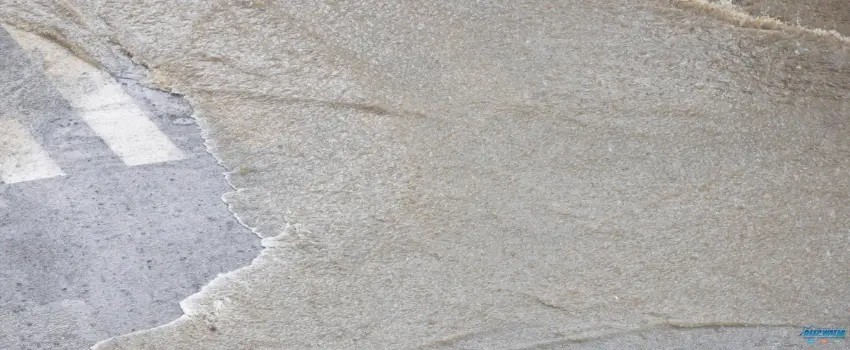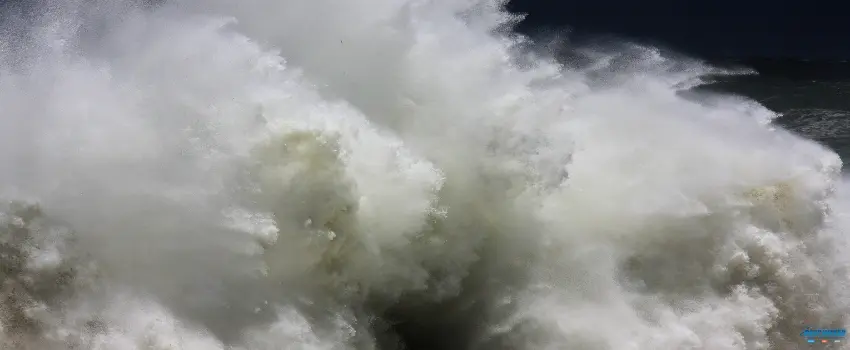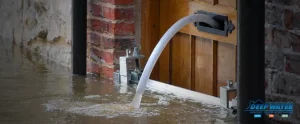Floods are one of the most common natural disasters in the world. They are defined as an overflow of water, which submerges land that is usually dry. Floods can be caused by a variety of factors, including heavy rainfall, melted snow, and storm surges brought about by hurricanes and tsunamis.
There are several types of floods, each with its own unique characteristics and causes. Depending on the type, a flood can either move fast or linger for a while in any given place.
Types of Floods
Floods can cause extensive damage to property and even result in the loss of lives. These come in varying types, which include the following:
1. River Floods
These occur when heavy rainfall causes a river to overflow its banks.River floodscan be slow-moving and prolonged, lasting for several weeks or even months. They can cause significant damage to infrastructure and homes built near the river.
2. Coastal Floods
These are floods that develop when strong winds, heavy rainfall, or storm surges cause water to rise and move towards coastal areas. These can also be caused by hurricanes, typhoons, or other severe weather events. Coastal floods can be particularly dangerous when they reach coastal communities and infrastructure because they can disrupt people’s lives and business operations.
3. Flash Floods
These floods are usually the result of sudden and intense rainfall, causing water to rise quickly and unexpectedly.Flash floodsare usually short-lived, but they can be dangerous. They are most common in arid or semi-arid regions, where the soil is unable to absorb large amounts of water.
4. Urban Floods
Urban floods occur when heavy rainfall overwhelms the drainage systems in cities and towns. Those living in low-lying areas are particularly vulnerable to these types of floods, which have become increasingly common in recent years. This is because of the development of many cities, causing more land to be paved over, and reducing the ability of the soil to absorb water.
Causes of Flood
Various conditions can lead to a flood, but the following causes are the most common:
1. Heavy Rainfall

This is easily the most common culprit when it comes to floods. When there is too much rainfall in a short period, the ground becomes saturated and is unable to absorb any more water. This can lead to an overflow into nearby rivers, streams, and lakes.
2. Melting Snow
During the winter months, snow accumulates on the ground in many parts of the world. Once the warm season comes in, however, it will cause the snow to melt and become water, which then flows into nearby rivers and streams. If there is too much melted snow in a given area, a flood can ensue.
3. Dam Failure
Dams are designed to control the flow of water in rivers so flooding can be prevented. If these gigantic structures suffer from any form of damage, they can actually become the cause of a flood. This can happen if the dam is old and deteriorating, consequently becoming incapable of handling or containing a large volume of water.
4. Storm Surges

Often the product of hurricanes or typhoons, storm surges are so powerful that they can push large amounts of water onto coastal areas where they can cause severe flooding. They are particularly dangerous because they can happen quickly and without warning, especially if no information about floods is made available.
5. Human Activities
Certain activities of man like construction, deforestation, and mining can also result in floods. When forests are cleared, the soil is no longer able to absorb water as effectively as it should. This allows water to move freely until it finds the lowest level where it can settle. Similarly, construction and mining can disrupt natural drainage patterns and cause water to accumulate in certain areas.
Effects of Flood
Floods are difficult to predict with exact precision, and can result in the following:
1. Loss of Life
A flood is a dangerous natural force that can cause the loss of many lives. People can be swept away by fast-moving waters or end up trapped in their homes by rising water levels.
2. Property Damage
Floods and natural disasters are known for causing significant damage to homes, businesses, and infrastructure. The devastation can range from minorwater damageto the complete destruction of buildings and houses, with the cost of repairing and rebuilding them often substantial.
3. Displacement
When an area gets flooded, it can force people to evacuate their homes and seek shelter elsewhere. This can lead to temporary or permanent displacement, which can be disruptive and even traumatic to many. In some cases, people are unable to return to their homes for weeks or even months because the waters have not receded.Even worse is when they are not given accurate information about floods and the plans that the local government has for them.
4. Environmental Damage
Some people may not see it right away, but floods can also have adverse effects on the environment. They canerode the soil, destroy natural habitats, and contaminate water sources. All of these can have long-term consequences on the ecosystem.
5. Economic Loss
After a major flood, some businesses may have a hard time recovering from their losses and could eventually be forced to close shop. This is especially true if the needed infrastructure and access roads were badly damaged and could not be rebuilt right away due to a shortage of funds. Business closures will lead to unemployment, which can put a strain on local and national economies.
Key Takeaway
Floods and natural disasters are sometimes inevitable, but this should not mean that you should not prepare for them. While they are undeniably destructive, allowing them to ruin your life and your property can only lead to more serious problems like water damage.
Nevertheless, the good news is that after a disaster like a flood, there’s always a great opportunity to rebuild everything. The work will be long and hard, but there areprofessional mitigation companiesthat you ca look into for the needed assistance.
Rebuild your life after a disaster with the help of Deep Water Emergency Services and Mitigation.
A flood can often lead to water damage. When it strikes, you can count on Deep Water Emergency Services and Mitigation to help you recover.
Ourwater damage mitigation Denver, CO, team are composed of veterans in the field and will not hesitate in providing you with all the help you need. Together, we can reduce the risks and impact of water damage and create a safer, more resilient future for you. Call us now.






